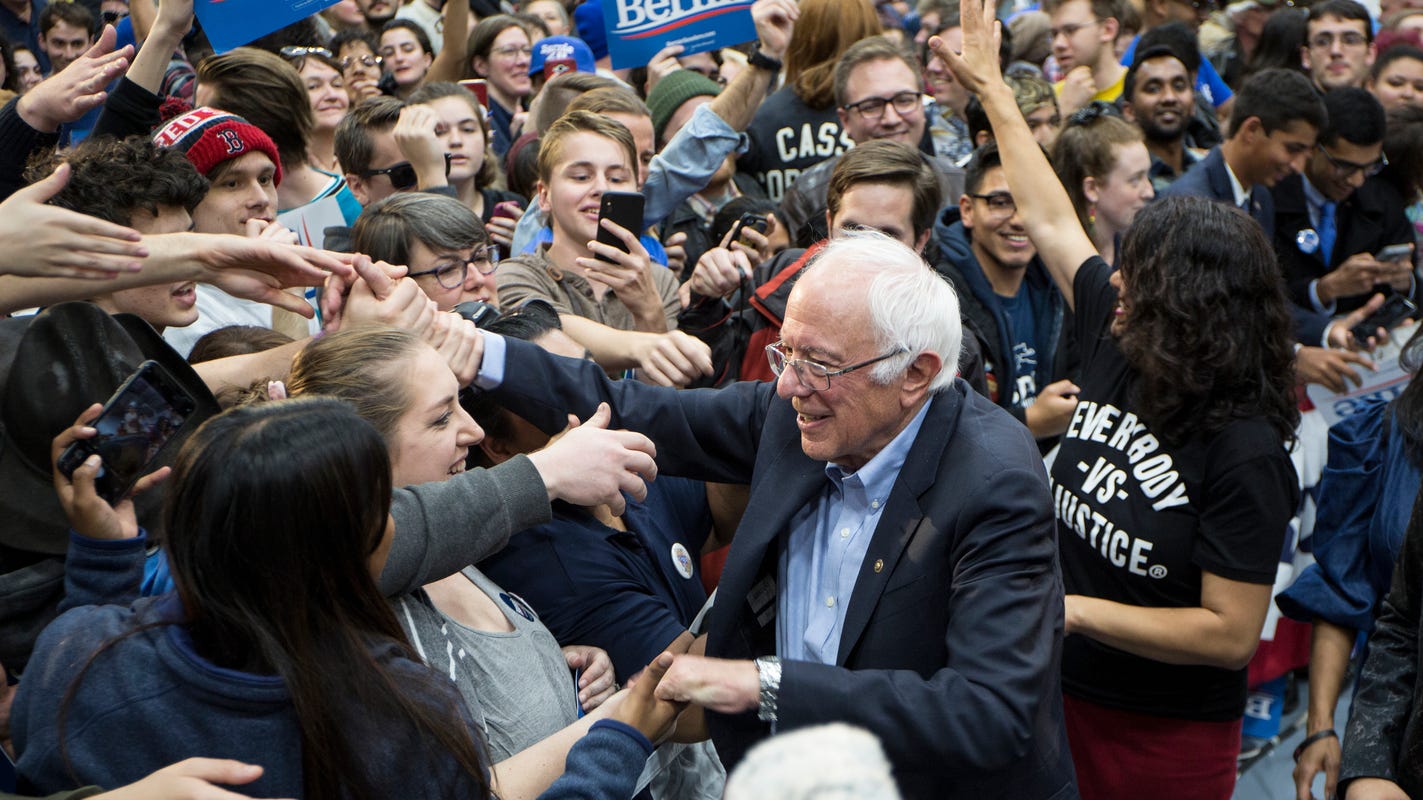
For the past few weeks, national polls have confirmed Sen. Bernie Sanders’ ascent in the Democratic Party’s nomination contest to face Donald Trump on Nov. 3. Sanders’ performance in the Iowa caucuses and the New Hampshire primary in early February demonstrated his ability to transform poll predictions into concrete results. His most recent victory in the Nevada caucus now makes him an indispensable choice among the Democrats for the presidency.
The very determined Sanders, who describes himself as a democratic socialist, seems to have learned from his defeat by Hillary Clinton in 2016. His organization on the ground, his grassroots funding, the consistency and clarity of his political message have attracted some of the most enthusiastic supporters … by far!
The upcoming South Carolina primary and “Super Tuesday” on Mar. 3 could be crucial for three of his opponents: former Vice President Joe Biden and Sens. Elizabeth Warren and Amy Klobuchar.
In short, no one doubts the power and durability of Sanders’ campaign anymore.
Since the Iowa caucus, there has been an even more obvious division between the moderates (the biggest and most representative group of the Democratic Party as a whole) and the progressives (largely concentrated in Sanders’ and Warren’s camps). The debate in Las Vegas on Feb. 19 clearly demonstrated this.
The first target of the progressives was Michael Bloomberg, who was participating in his very first debate in this race. The former mayor of New York is considered a moderate who has the financial means to stay in this race until the end.
All observers seem to agree that Bloomberg’s poor performance in this debate resulted in a gain for the progressives, and more specifically for Sanders. Since then, he has been deemed the front-runner.
The other so-called moderate candidates such as Biden, Klobuchar and even Mayor Buttigieg made little impact during the debate. If Biden disappoints in South Carolina (a state where he seems to have an advantage thanks to his popularity amongst African-Americans)* and underperforms on Super Tuesday, Bloomberg will be seen as the moderates’ only hope for blocking Sanders in his quest for the Democratic nomination, and possibly beating Trump at the presidential election. It should be noted that Bloomberg’s poor performance in the debate, however, has made him less appealing to the Democratic base.
Trump’s Choice?
Judging by his numerous tweets over the past few weeks, President Trump is more concerned about a candidacy from the moderate wing − particularly Biden and Bloomberg. The two nicknames he gave Sanders, “Crazy Bernie” and “socialist-in-chief”* (potentially damaging to a candidate in the United States), led some observers to conclude that the capitalist Trump hopes for the socialist Sanders’ victory.
Given the solid economic performance of the United States and the American people’s satisfaction with their president on this matter (54%, according to the most recent Gallup poll), we can conclude that, at first glance, Trump would be the preferred candidate in a race against Sanders.
That being said, Sanders’ candidacy has several similarities to that of Trump. Both offer populist messages, and each has a highly enthusiastic and committed political base—not to mention that both are seen as anti-establishment candidates.
It is worth noting, however, that a victory by Sanders risks polarizing the Democratic Party, which could benefit Trump in the fall. Presumably, that is what the president is betting on now.
Beyond the Presidency
A concern among moderates and the Democratic establishment over Sanders’ rise revolves around the struggle in Congress − the House of Representatives with its 435 elected officials and the Senate. Will there be a ripple effect on these races that will benefit them?
Republicans under Trump lost control of the House of Representatives in 2018. Most recently, the Democratic majority voted to impeach the president. Some Democrats may not be reelected.
Twenty-three Republican Senate seats are at stake in the 33 elections to be held this fall. If the Democrats win four seats in the Senate, they will gain control of the upper house.
In Short, the Democrats Must Aim Beyond the Presidency
A defeat for the Democrats in the presidential election would certainly be disappointing, but their takeover of the two houses in Congress would represent a huge thorn in the side for Trump’s second presidential term.
Is Sanders the best candidate for the Democrats’ success this fall? It’s still too early to say; but the mere act of asking that question clearly demonstrates how indispensable the very determined Sanders has become.
*Editor’s note: Biden won the South Carolina primary, receiving 48.4% of the vote. Sanders was second, with 19.9%.
**Editor’s note: This quotation, accurately translated, could not be verified.

Leave a Reply
You must be logged in to post a comment.